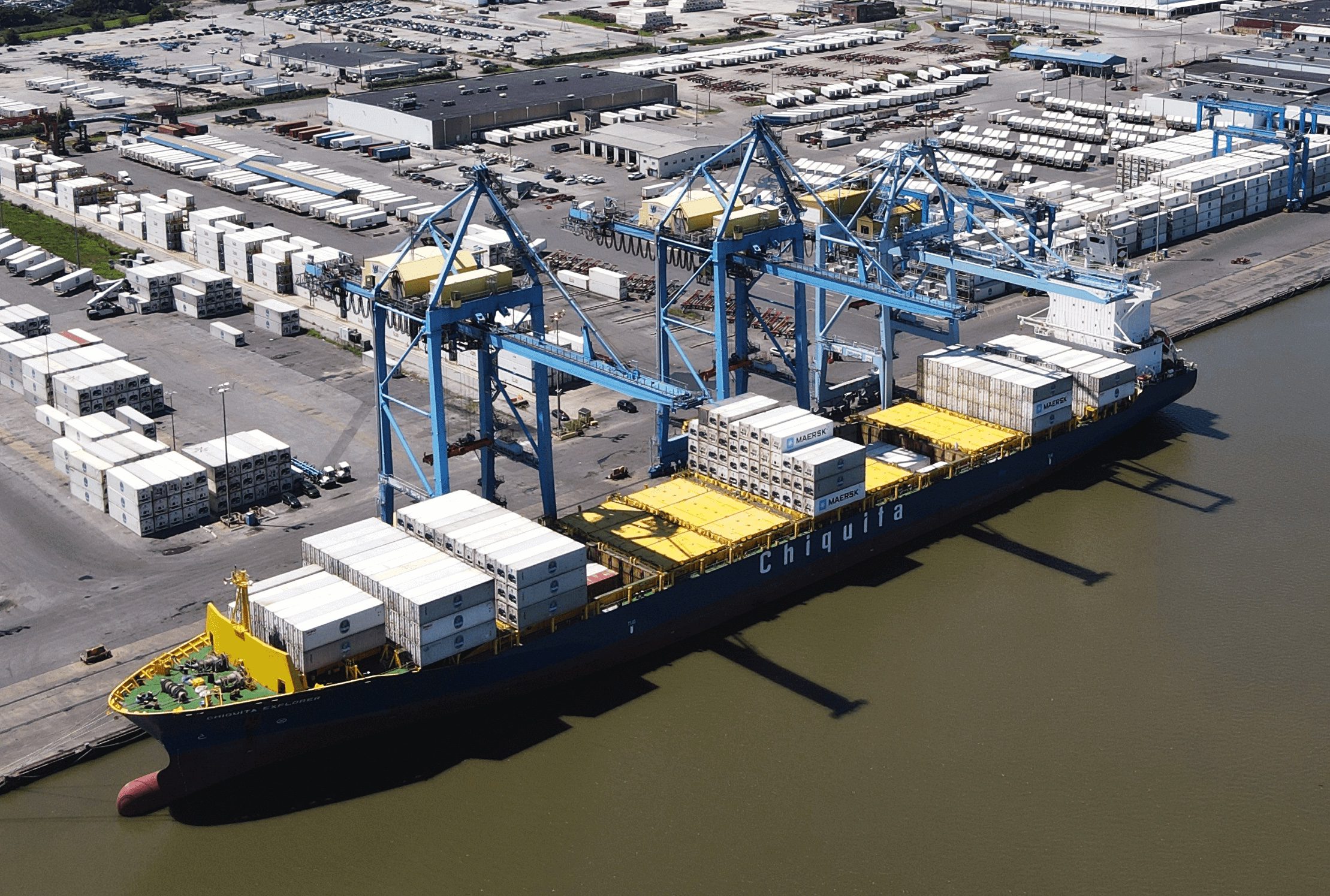Update: Tentative Agreement Reached to End U.S. Port Strike
The International Longshoremen’s Association (ILA) has outlined key demands that must be met to resume contract negotiations with the United States Maritime Alliance (USMX).
The union’s response comes after USMX’s statement on Tuesday regarding their contract offer, which the ILA claims “distorts the facts and misleads the public.”
The strike, which began at 12:01 a.m. on Tuesday, marks the first ILA coast-wide strike since 1977, impacting roughly half of all U.S. containerized imports and exports during the ocean peak season. The dispute centers on wage increases and protections against automation.
Taft-Hartley: Port Strike Sparks Urgent Calls for Biden Intervention
Central to the dispute is USMX’s proposed “nearly 50% wage increase,” which the ILA argues fails to address their members’ needs adequately. The union points out that many of its members operate multi-million-dollar container-handling equipment for just $20 an hour, barely above some states’ minimum wages.
The ILA also takes issue with USMX’s proposal to maintain “the current language around automation and semi-automation.”
“Our members don’t work typical 9-to-5 jobs; they work extraordinary hours, sacrificing time with their families. They deserve a contract that recognizes their contributions, secures their jobs, and reflects the profits generated by their labor,” said ILA President Harold Daggett.
The ILA has highlighted several key issues in their negotiations with USMX. The union considers the current six-year wage progression system inadequate, as it offers no incentives for faster advancement.
Job security is another major concern, with the ILA firmly opposing any form of automation, either full or semi, that could replace jobs or historical work functions. “We will not accept the loss of work and livelihood for our members due to automation. Our position is clear: the preservation of jobs and historical work functions is non-negotiable,” it said.
Ships Queue at Ports as U.S. Dockworker Strike Enters Third Day
On Tuesday, Daggett highlighted the “Auto Gate system” issues that prompted the ILA to cancel scheduled negotiations with USMX—which represents port employers, including several foreign-owned ocean carriers such as Maersk, MSC, and COSCO—in early June. The controversy arose when it was discovered that APM Terminals and Maersk Line, both a part of Danish conglomerate A.P. Moller – Maersk, were using an Auto Gate system—a technology that processes trucks autonomously, effectively bypassing ILA labor. Initially identified at the Port of Mobile, Alabama, the ILA claimed this system was in use at other ports as well. The union also accused APM and Maersk’s IT departments in Charlotte, North Carolina, of encroaching on their jurisdiction.
The union is also demanding 100% of Container Royalty monies, arguing that these funds should serve as a wage supplement for members rather than being shared with employers. Lastly, the ILA points out the challenging working conditions faced by its members, with two-thirds being on-call without guaranteed employment and benefits tied to the previous year’s work hours.
The ILA claims it has been ready to negotiate for two years, criticizing USMX for presenting their offer “on the eve of a potential strike”. The union underscores the need for a contract that reflects the value of their members’ contributions, especially considering the sacrifices made during the pandemic.
In a new statement on Wednesday, the USMX called on the ILA to resume negotiations to resolve the remaining critical issues.
“Reaching an agreement will require negotiating – and our full focus is on how to return to the table to further discuss these vital components, many of which are intertwined. We cannot agree to preconditions to return to bargaining – but we remain committed to bargaining in good faith to address the ILA’s demands and USMX’s concerns,” the statement said.
In a statement on Tuesday, the Biden Administration stressed the importance of collective bargaining and urged USMX to present a fair offer to the ILA workers.
“It is time for USMX to negotiate a fair contract with the longshoremen that reflects the substantial contribution they’ve been making to our economic comeback,” the statement said.
As as the strike continues, the maritime industry watches closely, aware of the potential impact on U.S. ports and the broader economy. The ILA’s stance remains firm: fair wages, job security, and recognition of their members’ value are non-negotiable for bringing them back to the bargaining table.
“This is what it will take to bring the ILA back to the table to continue talks,” the ILA said.

 Join The Club
Join The Club










